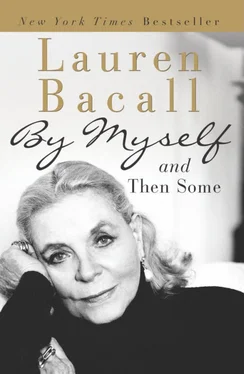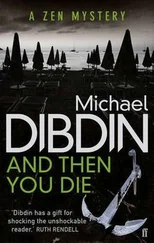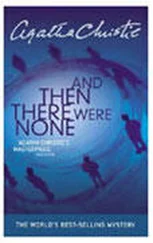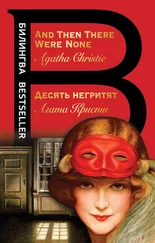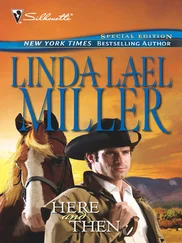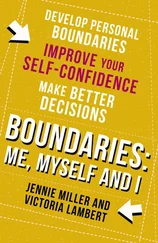We had a poem to recite – ‘A wise old owl sat on an oak; the more he saw, the less he spoke; the less he spoke, the more he heard; I want to be like that wise old bird.’ As she called on us, we’d walk to a chair in the center of the room – the back of the chair facing the class served as a perch – climb onto the chair as an owl, look around as an owl, be an owl, and speak the words. I did it and was given high marks – I was a very good owl. One day we were sitting around the room talking very generally of things we’d seen. She asked us if there were any animals we had ever noticed in particular. I said, ‘Oh, yes – I always watch the squirrels in Central Park moving from place to place, finding acorns on the ground, and carrying them up a tree to some secret place of their own.’ Mrs Parke said, ‘Well, Betty, you sound as though you really have studied them. All right, be one now – be a squirrel.’ The next thing I knew, I was squatting on the floor, hopping around the room, nibbling on imaginary acorns. There were a few titters, of course – but I had clearly watched squirrels carefully during those days I had played hookey from school. And you damn well say to yourself, I feel like a fool, I look like a fool, but I have to forget that or I’ll never do anything.
During the year Mrs Parke asked us to write two monologues – one dramatic, one comic. They were to be telephone conversations. I racked my brain. Marcella and I talked endlessly about what our subjects would be. I finally arrived at mine – my dramatic conversation was to tell the tale of the loss of my canary. I enlarged on the story, dramatized it, saying that I’d had only this small bird to confide all my hopes and dreams in, and every night when I came home from work I’d talk to him – me, this lonely, sad woman – and that one day when he flew away it was as though my life had ended. The monologue was funny too – but very sad. Mrs Parke liked it. My idea for the second one tickled my funny bone to such an extent I could barely sit still to write it. This time I was a girl with a harelip who, having just graduated from college, was telephoning a friend and explaining that she had decided to become a speech teacher. Can you imagine? A sixteen-year-old mind at work overtime. The idea of having a speech defect – which of course I exaggerated in my delivery – and wanting to be a speech teacher seemed really funny to me. And Marcella was so doubled over with laughter she was out of control. I was sure I’d be the hit of the day. But Mrs Parke was not amused. When I finally finished: ‘Miss Bacal, there is no humor in making fun of the physical defects of others. They cannot help it – it is never funny. Now, your first telephone conversation is the one you should have used for comedy. That had humor and warmth. This one is the tragedy.’ I was devastated – but I learned something. Making a bad choice in acting is not the end of the world. Each one is bound to be a lesson of some sort. And making a fool of yourself is something all actors have to risk doing. That’s part of our business. And that too is not the end of the world, though it can seem so at the time.
One of the best things about the American Academy was attending the weekly plays put on by the senior class. Downstairs in the building there was a theatre called the Carnegie Lyceum where the plays were performed on Friday nights. One of the actors in these plays I thought was marvelous – so attractive and so good. I saw him first in a straight part, then as a fop in a Restoration comedy. One Friday night, at intermission, I was on the landing chatting with friends when I glanced down the stairs and there he was, looking at me – my hero, the marvelous actor. Blond hair, blue eyes, cleft chin. Name – Kirk Douglas. Of course I started to tremble. All my life, at any emotional time, I have trembled. As the atmosphere at these plays was always very informal, it wasn’t too difficult to meet, and when I saw him a couple of Fridays after that, we talked. Briefly and casually – and then talked more and more easily. I had a wild crush on Kirk. He finally invited me out – took me to a Chinese restaurant in Greenwich Village. He lived there on Third Street (in the Village, not in the Chinese restaurant). He told me all about himself. He was on a scholarship at the Academy. He had no money at all. Once he spent a night in jail because he had no place to sleep. The drama of that – and the effect it had on one as impressionable as I! Oh, how he has suffered! I thought. He really had struggled.
I was such a child. I had no idea really how to behave with a man. I had never had a romance – certainly never had a love affair. Nice Jewish girls stayed virgins until they were married, they saved themselves for the man they were going to spend their lives with, so necking in dark corners was about my speed and I was terrified to venture into the unknown beyond that. I went out with Kirk as often as he asked me. He came to my house, where my grandmother would cook for him. He adored her – and he made a great impression on her, of course, my old-fashioned grandma. A nice Jewish boy at last – what could be better? He and Mother got on famously. I even introduced him to Charlie. Poor Kirk must have been scared to death. I remember he had only one coat – reversible, very thin, tweed on one side, raincoat on the other. I thought he must be frozen in the winter. I knew that Charlie had an old winter coat that he never wore and I prevailed on him, adorable man that he was, to let me give it to Kirk. Kirk and I made a date one Saturday – I told him I had a surprise for him – Uncle Charlie brought me downtown with the coat and I marched up the stairs to Kirk’s flat. He was thrilled and grateful. There was a button loose and I remember sitting in Kirk’s flat and sewing on the button. Of course I had domestic visions at the time – Kirk and I together on the stage, off the stage, doing everything for each other. I always fantasized, always magnified things out of proportion – and it was all in my mind, I was always disappointed – it took me over twenty years to figure that out. Anyway, Kirk did not really pursue me. He was friendly and sweet – enjoyed my company – but I was clearly too young for him. I became somewhat friendly with a girl named Diana Dill, who was a senior at the Academy. One night I stayed over at her apartment. As we were reviewing life, Kirk’s name came into the conversation. She said, ‘Oh, don’t ever get mixed up with anyone like him. You’ll get hurt. Actors are unreliable. Not really to be trusted. He’s all right to have fun with – don’t get serious about him.’ Thank God I didn’t tell her how I felt about Kirk. I realized that they had been going together rather steadily. They had split up and that’s when I had made my entry onto the scene. (In retrospect, I realize that from then on, almost every man I have been attracted to has belonged to someone else or wanted to belong to someone else.) Diana and Kirk ended up getting married a few years later. Kirk was always kind to me. I, being the hopelessly romantic creature I was, used to go home at night, turn classical music on the radio, and write poetry. I loved to write poetry. Always dramatic – often about unrequited love (I didn’t know any other kind). One sample:
How beautiful it was –
A perfect moment.
But alas! It was a dream.
When Kirk left the Academy, he joined the Navy. He wrote me from time to time – the letters I wanted to receive. They were written out of loneliness, I knew, but I adored having them. I remember his dream was to bring his family to New York to see him on the stage. He became a busboy at Schrafft’s on Broadway at 86th Street, then a waiter. Of course I’d drag a friend in, or my mother, and we’d order one thing, as we couldn’t afford much in the way of extras. And he was terrific – a perfect busboy and waiter, playing the parts to perfection until the big break came.
Читать дальше
